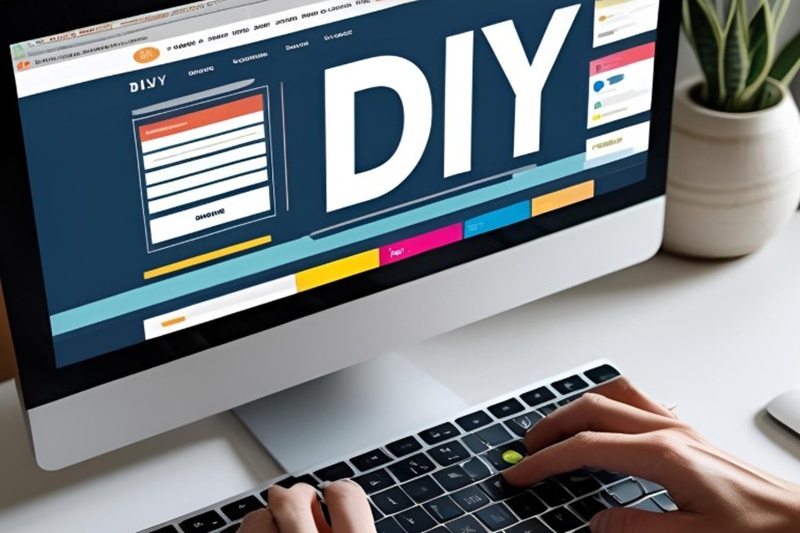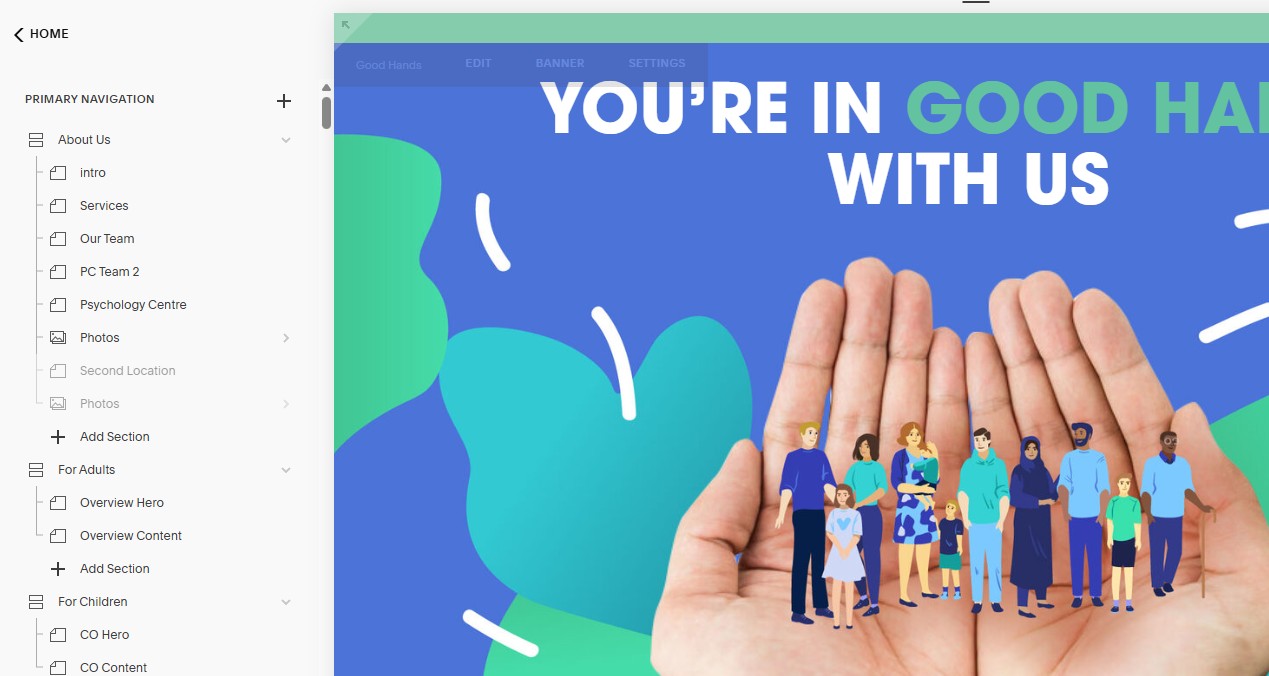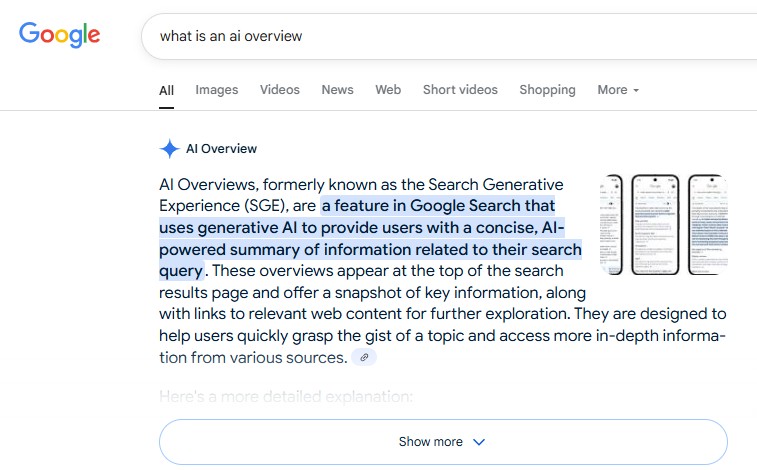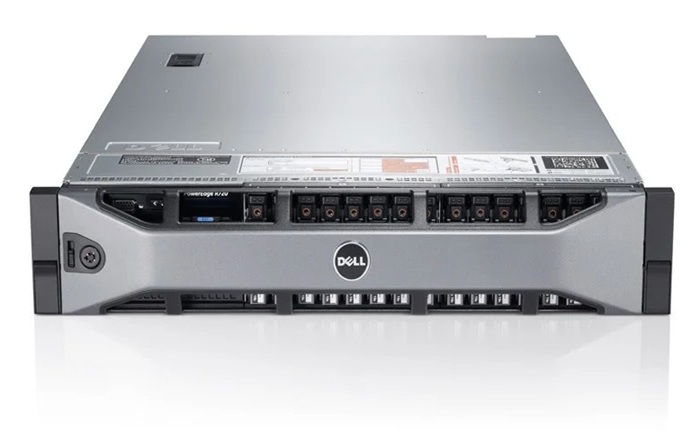
Is a DIY website design a good investment?
With all the DIY website builders out there these days, it’s pretty easy to get started without a pro. But is tackling a DIY website actually a good move for your business in the long run? This article will walk you through the good bits and the not-so-good bits of going it alone, helping you figure out if a DIY website is the right fit for you.
Key Takeaways
- DIY website builders are often cheaper to start with, which is great if you’re on a tight budget.
- You have total control over the design and content when you build it yourself, letting you change things whenever you like.
- Getting a DIY website up and running can be super quick, perfect for when you need an online presence fast.
- However, a DIY approach can eat up a lot of your time, and there’s a bit of a learning curve involved.
- DIY websites might not grow with your business easily, and their design or features might not always hit the mark.
Understanding DIY Website Design
What is a DIY Website?
DIY website design is all about taking the reins and building your own website, often using user-friendly platforms. Think of it as assembling flat-pack furniture, but for the internet! These platforms provide templates and drag-and-drop interfaces, making the process accessible even if you don’t have coding skills. You’ll be using tools like WordPress, Wix, or Squarespace to bring your vision to life. It’s a hands-on approach where you’re in charge of everything from the layout to the content. It’s worth noting that while these platforms are designed to be intuitive, there’s still a learning curve involved in mastering their features and customisation options. You might find yourself spending a fair bit of time watching tutorials and experimenting with different settings to get things just right. So, is it worth hiring a professional for custom web design?
Common DIY Website Builders
When it comes to DIY website builders, you’re spoiled for choice. Each platform has its own strengths and weaknesses, so it’s worth doing your research to find the one that best suits your needs. Here are a few of the big players:
- Wix: Known for its drag-and-drop interface and extensive template library, Wix is a popular choice for beginners. It offers a wide range of features and apps, but can sometimes feel a bit overwhelming.
- Squarespace: Squarespace is all about sleek, modern design. It’s a great option if you want a visually appealing website without having to worry too much about the technical details. However, it’s less customisable than some other platforms.
- WordPress.com: Don’t confuse this with WordPress.org (the self-hosted version). WordPress.com offers a simplified, hosted version of the popular content management system. It’s easy to use and offers a good balance of features and flexibility. However, you’ll need to upgrade to a paid plan to unlock its full potential.
- Weebly: Weebly is another user-friendly option with a drag-and-drop interface. It’s particularly well-suited for small businesses and e-commerce websites. It’s a solid choice if you’re after something straightforward and easy to manage. Remember to check out the SEO framework of each platform before committing.
Choosing the right platform is a bit like picking the right tool for a job. Consider what you want to achieve with your website, your technical skills, and your budget. Don’t be afraid to try out a few different platforms before making a decision. Most offer free trials or basic plans, so you can get a feel for how they work before committing to a paid subscription.
Pros of DIY Website Design
DIY website design can be a tempting option, especially when you’re just starting out. You might be thinking about saving some dosh and getting your website up and running quickly. Let’s have a look at some of the advantages you might find with this approach.
Initial Cost Savings
For many, the biggest draw to DIY website design is the initial cost savings. Using a website builder is often cheaper than hiring a professional web designer, especially when you’re on a tight budget. You can find affordable subscription plans that include hosting, templates, and some level of support. This can be a real lifesaver for new businesses or startups watching every penny. It’s a good way to get your foot in the door without breaking the bank. Just remember to factor in your time – time is money, after all!
Full Control and Flexibility
With a DIY website, you’re in the driver’s seat. You have complete control over the look, feel, and content of your site. Want to change the font? Go for it. Want to add a new page? No problem. This flexibility is great if you like to tinker and experiment. You can update your content whenever you need to, without having to wait for a web designer to make the changes. It’s all about having the freedom to do things your way. This is especially useful if you want to test different ideas or customise templates to suit your brand.
Quick Launch Time
Need a website up and running ASAP? DIY website builders can be a godsend. You can often get a basic website live within hours, which is a huge advantage if you’re under the pump. Many platforms offer templates that you can easily customise, making it a faster way to get your website online. For startups needing to quickly establish an online presence, this speed to launch can be a game-changer. Just remember that while you can get something up quickly, it might not be perfect right away. It’s a trade-off between speed and polish.
DIY website design can be a great option if you’re on a tight budget and need a website up quickly. However, it’s important to weigh the pros and cons carefully before making a decision. Consider your long-term goals and whether a DIY approach will still meet your needs as your business grows.
Cons of DIY Website Design
While the allure of DIY website design is strong, particularly for its cost-effectiveness, it’s crucial to consider the potential drawbacks before committing. Let’s take a look at some of the cons.
Time Commitment and Learning Curve
Sure, DIY website builders promise simplicity, but don’t be fooled. You’ll likely spend a fair chunk of time learning the ins and outs of the platform. It’s not always as intuitive as they make out. You might find yourself wrestling with features, watching countless tutorials, and generally pulling your hair out. This time could be better spent focusing on your core business. Plus, if you want a truly professional look, you’ll need to understand at least some basic web design principles. It’s a bigger commitment than you might think.
Limited Scalability and Customization
DIY platforms often use pre-built templates, which can be a good starting point. However, these templates can limit your ability to differentiate your brand in the long term. As your business grows, your website needs will evolve. DIY websites can be tricky to scale, restricting your options if you need advanced features, greater flexibility, or the ability to handle increased traffic. You might find yourself hitting a wall when you want to add custom integrations or unique website functions. It’s like trying to fit a square peg in a round hole.
Potential for Subpar Design and Functionality
Let’s be honest, unless you’re a design whiz, your DIY website might not look as polished as a professionally designed one. A poorly designed website can damage your brand’s credibility and turn potential customers away. Things like inconsistent branding, clunky navigation, and slow loading times can all contribute to a negative user experience. First impressions matter, and a subpar website can send the wrong message.
Questionable SEO framework
While most DIY platforms offer some SEO tools, they often lack the advanced customisation options needed to rank well in search engines. You might find yourself struggling to get your website seen by potential customers. Most reputable SEO agencies will tell a DIY site isn’t great for your rankings. Investing in professional SEO and custom web design could ultimately provide more visibility. It’s like building a shop in the middle of nowhere – no one will find it! DIY platforms may offer essential SEO tools, but they may lack the advanced customization options that enable your website to rank well in search engines.
Conclusion
So, when it comes to sorting out your website, you’ve got a couple of paths to pick from. You can go the DIY way, or you can get a pro to do it. If you’re just starting out, or maybe you’re on a tight budget, doing it yourself can be a good shout. It gets you online without breaking the bank. But, if you’re serious about making your brand shine, giving your customers a top-notch experience, and really making a mark, then putting some cash into a professional web designer is usually the smarter play. Think of your website as an investment in your business’s future. By looking at all your choices and understanding what’s good and what’s not so good about each, you can make the best call for your brand’s growth and how well it does online. Whether you build it yourself, get a pro, or even mix and match, your website should always show off what your brand is all about.
Frequently Asked Questions
What exactly are DIY website builders?
DIY website builders are tools that let you build a website yourself without needing to know computer code. Think of them like building blocks for your website. Popular ones include Wix and Squarespace. They usually have easy-to-use features like ‘drag and drop’ where you can move things around with your mouse, and ready-made designs called templates. This means almost anyone can make a website, even if they’re not tech-savvy.
What are the main benefits of designing your own website?
DIY website design can save you money at first because you don’t have to pay a professional designer. You also have full control over how your site looks and works, and you can get it online pretty quickly. This is great if you’re just starting out or need a simple site fast.
What are the downsides of using a DIY website builder?
While DIY seems easy, it can take a lot of your time to learn how to use the builder and make your site look good. These builders might also limit what you can do as your business grows, and your website might not look as professional as one made by an expert. Also, getting your DIY site to show up high in search results can be tricky.
When is a DIY website a smart choice?
For simple projects, like a personal blog or a small local business that just needs a basic online presence, a DIY website can be a good fit. It’s also suitable if you have a very limited budget or want to test out a business idea quickly.
When should you consider hiring a professional website designer instead?
If your business needs special features, a truly unique look, or you plan to grow a lot, hiring a professional is usually better. Professionals can also help your site perform well in search engines and ensure it’s easy for customers to use, which can lead to more sales.
Is a DIY website a good investment for your business?
It really depends on your needs. If you’re on a tight budget and need something simple quickly, DIY is a good start. However, if you want a top-notch website that stands out, works perfectly, and helps your business grow, investing in a professional designer is often worth it in the long run. Think about what your business needs most right now and in the future.
Share this article
A quick overview of the topics covered in this article.
- Understanding DIY Website Design
- Pros of DIY Website Design
- Cons of DIY Website Design
- Conclusion
- Frequently Asked Questions
- What exactly are DIY website builders?
- What are the main benefits of designing your own website?
- What are the downsides of using a DIY website builder?
- When is a DIY website a smart choice?
- When should you consider hiring a professional website designer instead?
- Is a DIY website a good investment for your business?
Latest articles
October 10, 2025
October 10, 2025
October 10, 2025







